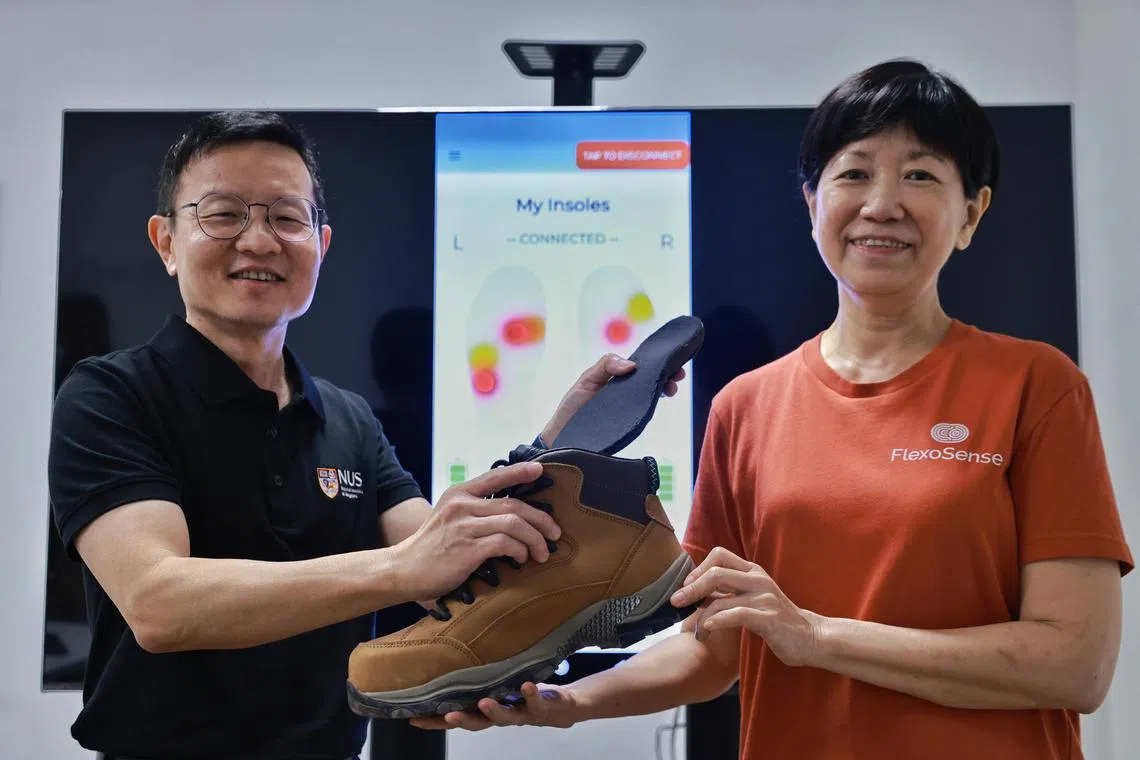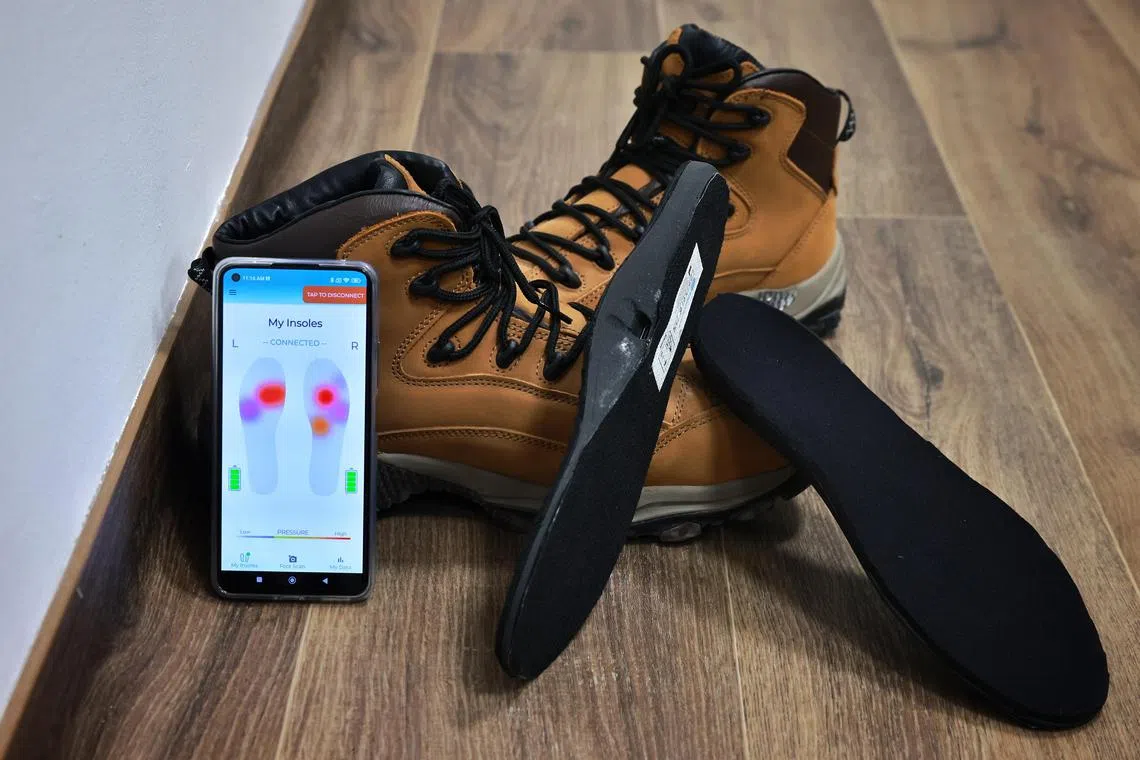Smart insole that detects workplace falls to be trialled in maritime sector
Sign up now: Get ST's newsletters delivered to your inbox

Professor Lim Chwee Teck (left), director of iHealthtech at NUS, and Ms Chia Lye Peng, CEO of FlexoSense with the smart insole.
ST PHOTO: JASON QUAH
SINGAPORE – A smart insole jointly developed by the National University of Singapore (NUS) and local start-up FlexoSense is set to go on trial in the Republic’s maritime industry in the first half of 2023 to tackle the issue of slips, trips and falls in the workplace.
The proof-of-concept tests are sponsored by the Maritime and Port Authority of Singapore (MPA) under its Mint-Startup Grant, which is worth up to $50,000.
Based on technology developed by Professor Lim Chwee Teck from NUS’ Institute for Health Innovation and Technology and researchers from FlexoSense, the shoe inserts can identify slips, trips and falls (STFs) using pressure sensors and inertial measurement unit (IMU) sensors.
The pressure sensors and IMU sensors continuously collect data on a person’s balance and motion, respectively, and streams this via Bluetooth to a smartphone. The information is then uploaded to the cloud via an Internet connection, where it is analysed by a machine-learning algorithm.
When a fall occurs, one’s speed, orientation and weight distribution in the feet will change. The algorithm can recognise these changes in real time to track their occurrence.
Should it detect one, an alert stating the location of the accident will be sent to a centralised dashboard for the employer, as well as to the employee’s smartphone. In future, such incidents will be registered on a “heat map” of the workplace, which helps to identify high-risk spots and enable companies to, say, clear hazardous debris or level uneven surfaces.
The device’s creators hope that this will make STF reporting more transparent by exposing otherwise unreported incidents, and prevent similar accidents from happening again.
Ms Chia Lye Peng, chief executive of FlexoSense, said: “The feet are a treasure trove of information. They give us information on one’s gait patterns, sense of balance and foot pressure. Our smart insole can help to reduce the human and financial costs before serious accidents happen.”
STFs, which the Ministry of Manpower (MOM) defines as occurring on level surfaces or stairs, are a key cause of workplace accidents across many industries here, and the marine sector is no different.
MOM told The Straits Times that from 2018 to 2022, STFs were among the top three incident types for major workplace injuries in the industry.
Ms Adeline Ng, director of the ministry’s Workplace Safety and Health Institute, said: “Some of the contributory factors leading to STFs include poor situational awareness, slippery or uneven surfaces, and clutter.”
Adding that there were also many STF near-misses that were unreported, she said these were potential indicators of existing hazards or poor workplace practices that needed to be rectified.
The researchers from NUS and FlexoSense decided to tackle the marine industry’s workplace hazards after participating in the PIER71 Smart Port Challenge 2021, an annual technological competition organised by MPA and NUS Enterprise, the university’s entrepreneurial arm.

Data collected from the device’s sensors can be viewed through a mobile app.
ST PHOTO: JASON QUAH
Although still in its early stages of development, the gadget was tested in 2021 with a few workers, which helped the researchers to gather more inputs for the design.
They hope to gear up the insole for harsher conditions and provide a customisable option to fit one’s foot shape better.
Prof Lim, who is also from the department of biomedical engineering at NUS, said: “Hopefully, with this technology in place, we can proactively monitor unreported STFs, which helps to minimise the number of workplace accidents that result in major injuries or fatalities.”
The team is also looking into future applications of the smart insole to mitigate STFs in the construction, aviation and manufacturing industries.


